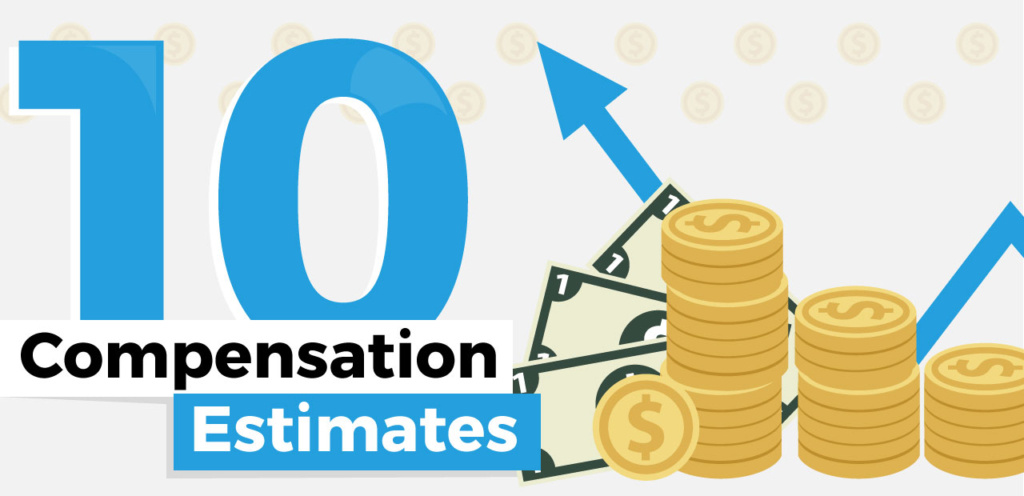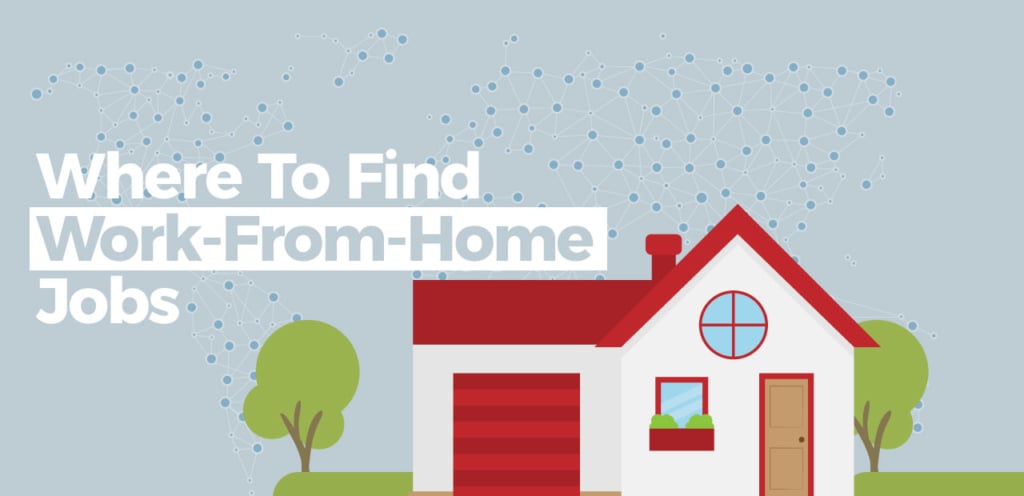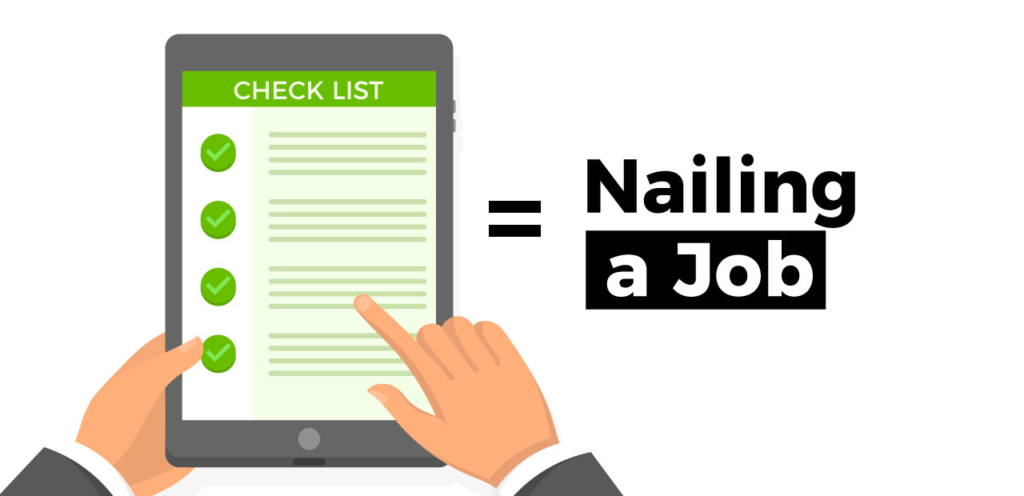
What Are The Top Paying Remote Jobs In 2018?
The answer depends on who you ask and how you categorize top paying remote jobs. For instance, prize employees in high paying sectors—architects, lawyers, programmers—who transition from full-time work in the main office to full-time work in their home office may earn the same salary. That’s because many companies say they care about the work an employee performs, not where it is executed.
Meanwhile, a search of remote jobs on employment site Glassdoor found a handful of jobs offering hefty salaries. These positions included a medical director of a diagnostic company (estimated salary: $174,000+), a medical director of a health insurance company (est. Salary: $184,000+) and the principal solutions marketing manager of an enterprise software solutions company (est. salary: $214,000+). So senior corporate positions do exist, and normally fall at the high range of all top paying remote jobs.
Most workers don’t fall into that category. Find the ten most commonly listed jobs below.
Ten Online Jobs That Pay
ZipRecruiter offers Compensation Estimates, which are made by mining salary data from millions of job listings and then mining that information to come up with a baseline average salary for a number of jobs. The average salary, by the way, of all virtual work from home jobs: $59,676/year and/or $29/hour.
- Average Remote Job Recruiter Salary: $81,028/year
- Average Remote Programmer Salary: $79,300/year
- Average Remote Project Manager Salary: $76,567/year
- Average Remote Data Analyst Salary: $70,258/year
- Average Remote Accountant Salary: $64,400/year
- Average Remote Account Manager Salary: $56,309/year
- Average Remote Graphic Designer Salary: $53,092/year
- Average Remote Content Editor Salary: $47,795/year
- Average Remote Customer Service Agent Salary: $31,390/year
The Median Remote Work From Home Payout
According to data provided by PayScale.com hourly wages for remote workers in the U.S. are anywhere from 3 to 10 times higher than wages paid in places like The Philippines, India, Russia and Romania. According to the site, the median hourly wage for a remote content writer in The Philippines is $2.38. In the U.S. it’s $21.93. For a web designer, the median hourly salary in India is $1.43; it’s $21.93 in the U.S.
The more technical skills—like web developers and app developers—earn higher wages everywhere. In the U.S., the median payout for an app developer is $32.24 an hour, while in Romania, the same job gets $9.36. Keep in mind, this is the median number, not the average. So half the jobs out there pay higher rates and half pay less.
Where to Find Work From Home Jobs That Pay Well
There are hundreds of places to find remote work. Many job sites offer remote opportunities and the ability to search for remote or part-time work. Some sites, however, specialize in remote work or offer more virtual job placements than others. Here are some of the leading sites for anyone interested in finding top paying remote jobs:
- Angel.co – The go-to site for jobs with start-ups. Many jobs are location specific, but many are not.
- Authenticjobs – A job board for designers and programmers. Not all jobs are for remote workers
- FlexJobs – Offers what it says is the biggest database of hand-screened remote jobs—and personalized search options.
- Freelancer – Similar to Upwork, employers posts projects and jobs and freelancers bid on them, naming their price and how long they estimate the job would take to complete.
- Hired – This talent board is a favorite of big corporations with hefty recruiting needs, who then use the site to find job candidates. You register, posting skills and services, and then cross your fingers.
- Hubstaff Talent – Offers a wide range of jobs, often paying far below U.S. market rates—posts paying $2-$5 dollars an hour are not uncommon.
- Fivrr.com – This is a pitch-your-business “talent site,” which is the opposite of job posting site. But you can list the services you offer and name your price. And cross your fingers that a client will find you.
- Remote.co – They post jobs daily and they also have a “Companies” page—a terrific resource to find companies that hire remote workers, in case you want to go appeal to them directly.
- Upwork – Perhaps the most trafficked and robust remote work portal. Businesses post jobs and users post “bids” on the jobs—specifiying rates, talents, abilities.
- WeWorkRemotely – Another excellent site with remote job listings. Boasting over 2,500,000 visitors per month, this site offers full and part-time job postings. They seem to specialize in software engineering and design gigs, but not exclusively.
Start Working Remotely, On Your Terms
There is another, more aggressive way to find remote gigs—but it involves creativity, persistence and salesmanship. What are you selling? You! Instead of searching for posted opportunities, some savvy remote workers pitch their services. This tactic requires prospecting—finding potential clients—and then offering your services to them.
Matching your skill set and services to prospective employees can be difficult. First, you want to reach someone with the authority to hire. Second, you’ve got to hope the timing is right—that they are looking for what you are selling. Unless you have inside information, it’s impossible to know if an organization needs a graphic designer or an SEO specialist.
Not everyone is a great salesperson or networker, so this method may not be for you. In fact, it can be quite painful—with lots of dead silences and rejections. But for those who are good at selling their skills or have developed stellar reputations, setting up a promotional website and essentially marketing your skills can pay off. Done correctly you may find yourself so inundated with work, you may have to hire remote workers of your own to satisfy demand!
Checklist: Snagging The Top Paying Remote Jobs
You already know that your resume is essential when it comes to nabbing a job, regardless of whether it is remote or site-specific. But it also necessary to have references, testimonials and a portfolio ready and waiting.
- Do you have a profile on Linkedin? If not, that’s the first thing you should do when you finish this article. It’s not that linked in is the ultimate job site, it’s just that practically every application asks for it. Sadly, in some instances, recruiters ask for it not just they can learn about you, it also works to generate other leads for them—because they can see your connections. But if that’s the price of entry, it is worth it!
- Do you have any testimonials on your Linkedin page? Ask a friend or colleague to write one. It’s like have a public reference.
- Have you asked a recruiter or manager to evaluate your resume? Resumes are often the first step to selling yourself and telling your story. Make sure you are presenting your best self!
- Has your resume been proof-read? Again, ask a friend to look it over or pay a copy editor on Fiverr! Typos aren’t the worst thing in the world, but why give a recruiter a reason to pass on you instantly?
- More and more employers are asking for portfolios that showcase your work—especially in the marketing, writing, editing and design fields. You can create portfolios on some job sites, like Upwork, Contently. Or you can generate a pdf on Google Docs and share the link.
- Consider making a second portfolio. Different jobs have different requirements. If you are a graphic designer applying to for a web design position, showing off your print work and brochures may not be of interest to the recruiter. They want to see your web design, so that’s what you should highlight.
- Are your references at the ready? Again, this is something you can plan on. Ask a former co-worker or boss if they would sing your praises. If they say yes, then ask how they’d like to be contacted and keep that info at the ready.
Knowing Your Worth: Working Remotely
Most veteran workers have an idea of the what their services are worth—or were worth—working in the traditional work sector. The upheaval caused by the internet and remote worker competition has changed the landscape, however. While many employers maintain they have not reduced their pay scales for employees that work from home, the fact is the employment landscape has changed.
No doubt highly skilled remote workers are still valued, but employers who hire remote workers now have a vast labor supply. Consequently, when the number of available workers increases, some businesses can and frequently do take advantage of the law of supply and demand and lower their rates.
This can be a sobering reality for anyone entering the remote market. So it’s worth conducting a reality check. Talking to other remote workers in your field about their rates is a start. Some job sites—notably Upwork—offer options to let you see what others are bidding on a job so that you can get a sense of the competition.
Here are three sites that offer applications that give you some idea of remote salaries. payscale.com, glassdoor.com, and ZipRecruiter. They ask for data about your employment background, location, and salary history. If you don’t mind the intrusive questions, they can help give you perspective on remote earnings potential.
What If the Job Offer Pays Too Low?
If a job offer comes and the pay falls below your expectations, only you know whether you can afford to take the offer. But you should see if there’s room to negotiate. Consider telling the recruiter you are excited about the proposal but that it is below your standard rate. Then say and that you’ll have to think about accepting it. There are top paying remote jobs available, and you know your worth. Keep looking, now armed with the facts. Good Luck! And if you get hired check out our other article on how to start working remotely here.









